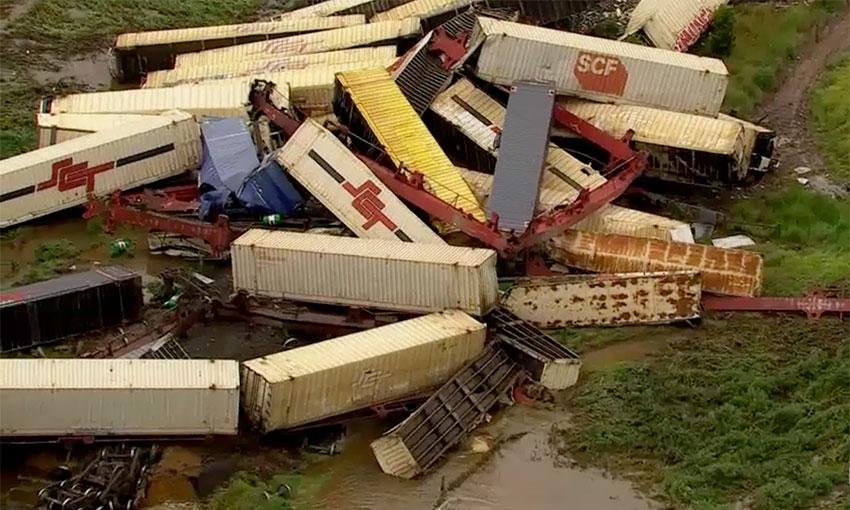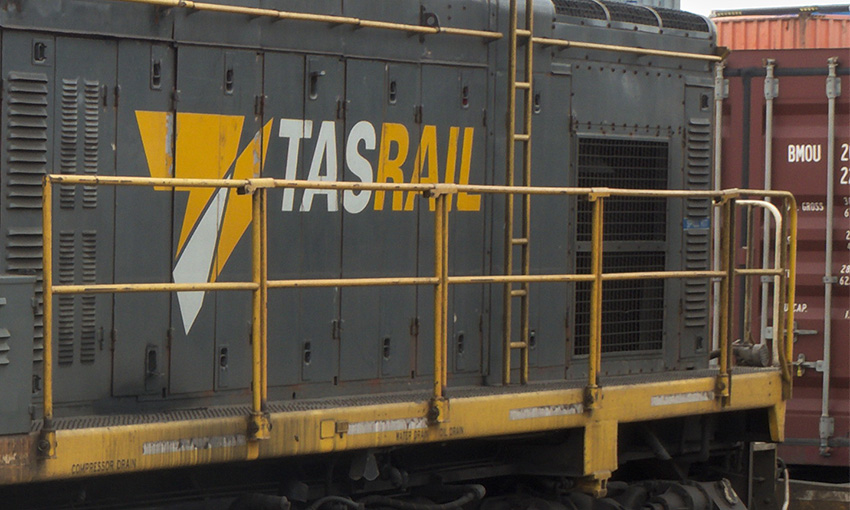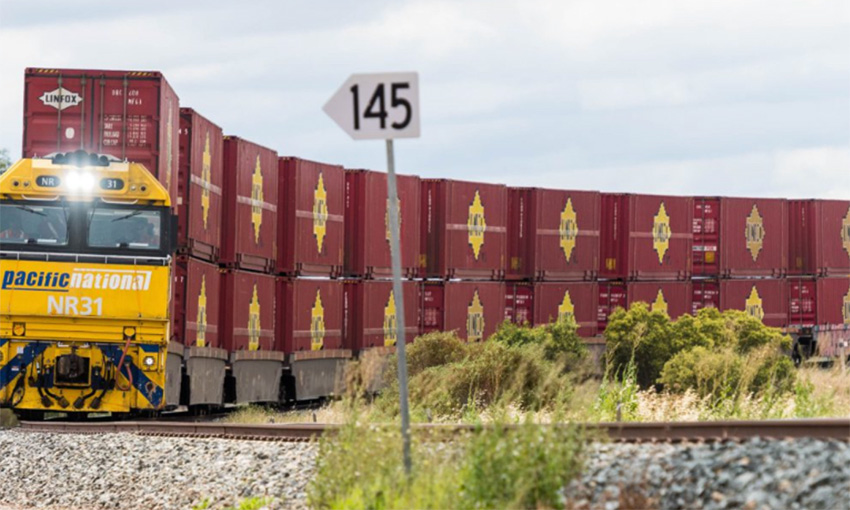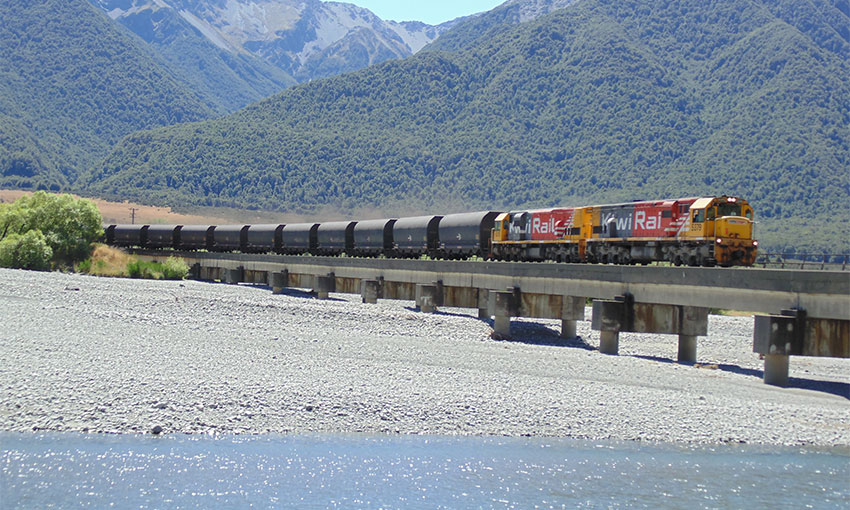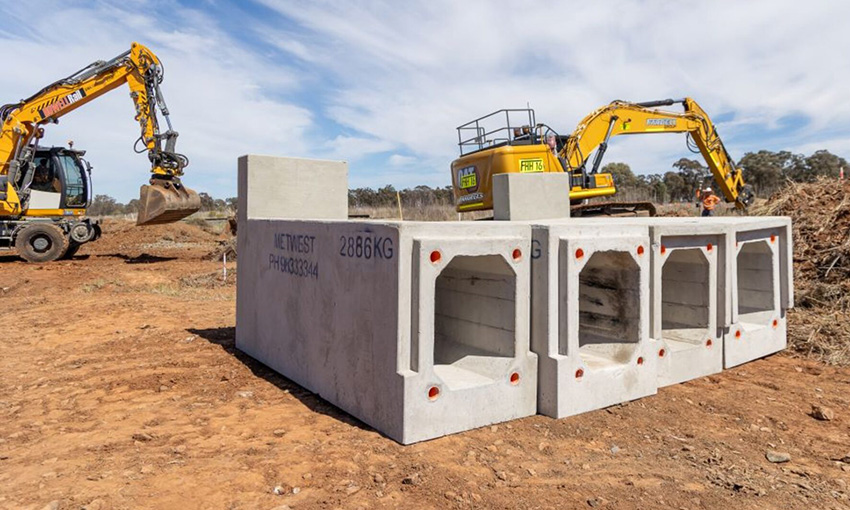A RAIL corridor closed by a derailed freight train is expected to re-open next week
The Melbourne-Adelaide rail corridor has been closed since Monday (14 November), when a 1.7-kilometre-long freight train derailed west of Geelong.
The incident damaged rail infrastructure and left shipping containers strewn across the tracks.
The Australian Rail Track Corporation said repair works are now underway.
ARTC expects the track to re-open next Tuesday (22 November), but it said it would confirm the date in the coming days.
“ARTC has more than fifty workers and multiple crews on-site, working around the clock to reconnect Australia’s east-west rail freight corridor.
“A key achievement has been the removal of wagons and containers off the track, and work has already started on rebuilding the northern end of the line.”
ARTC said more than 1500 new concrete sleepers nad 2500 tonnes of rock ballast have been delivered to the site.
It said heavy machinery, including excavation vehicles are now working to repair one kilometre of track.
The Australian Transport Safety Bureau is investigating the derailment.
Though the cause of the incident is not yet confirmed, Victoria had experienced heavy rainfall before the train derailed.
Rail freight operator Pacific National has, over the past year of extreme weather events, called for better rail infrastructure to support national supply chains.
Pacific National CEO Paul Scurrah told DCN rail lines which are regularly topped by floodwaters create disruptions and delays which hurt Australian businesses.
“We need to build our rail lines to more resilient standard – a resilient rail freight network enables Australian export industries to quickly seize market share in boom times and squeeze out profits in lean times,” Mr Scurrah said.
“But these opportunities are being hampered by the state of our supply chain infrastructure due to the inclement weather and closures to rail freight networks.
“In the face of Covid-induced global supply chain disruptions, volatile markets, historic levels of government debt, and a changing climate, Australian governments can no longer remain complacent about enhancing the resilience of our freight infrastructure.
“If they do – Australia’s future standard of living will almost certainly be derailed.”

